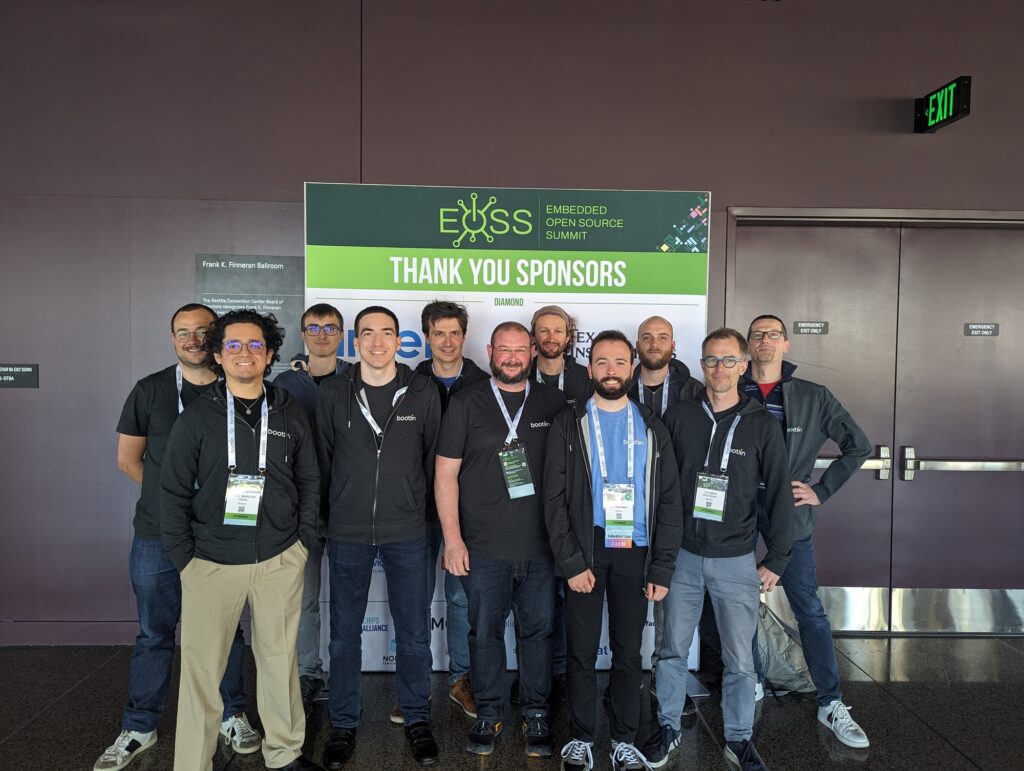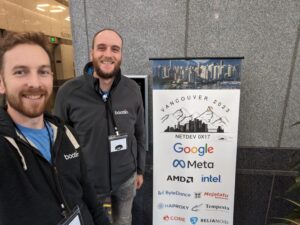 Next week is going to be a busy week in Vienna, with the Open Source Summit Europe followed by the Linux Plumbers conference. As we had already published in a previous blog post, Bootlin will have a very strong presence at those events: 13 Bootlin engineers will participate to the Open Source Summit and 2 will give talks, and 8 Bootlin engineers will participate to Linux Plumbers.
Next week is going to be a busy week in Vienna, with the Open Source Summit Europe followed by the Linux Plumbers conference. As we had already published in a previous blog post, Bootlin will have a very strong presence at those events: 13 Bootlin engineers will participate to the Open Source Summit and 2 will give talks, and 8 Bootlin engineers will participate to Linux Plumbers.
Regarding Linux Plumbers, we also proposed 3 discussion topics that got accepted:
- Representing the front-facing ports of Ethernet interfaces, a discussion proposed by Bootlin engineer Maxime Chevallier. This is a topic that Maxime has been working on for quite some time, mainly as part of customer projects at Bootlin. The first step of this effort recently got merged in the Linux kernel, and the ethtool part is being reviewed, but what got merged is only the first step, and additional developments are needed and will be discussed at Plumbers.
- Runtime hotplug on non-discoverable busses with device tree overlays, a discussion proposed by Bootlin engineers Luca Ceresoli and Hervé Codina. Both Luca and Hervé have been working over the past year or so on projects that involve using Device Tree overlays. Luca on a project where a part of the hardware, with non-discoverable busses (I2C, DSI, etc.) is connected/disconnected at runtime, and Hervé on a project where a PCI device is a full SoC with numerous peripherals that already have drivers in the kernel. Several patch series have been proposed on the mailing lists already, and we hope this discussion at Plumbers will help move the topic forward.
- Hotplug DRM pipeline components on non-discoverable video busses, a discussion proposed by Bootlin engineer Luca Ceresoli is also related to the previous project, but this discussion focuses on the DRM aspect. Indeed, one of the non-discoverable bus that gets connected/disconnected in our use-case is DSI, so we need to make it hotpluggable, which isn’t supported by Linux currently. We made some proposals on the mailing lists on this topic, and discussion is on-going. We hope a face to face discussion at Plumbers can help moving this other topic forward.
Meet us next week in Vienna, either at the Open Source Summit and/or at Linux Plumbers!



 From May 14 to May 16,
From May 14 to May 16, 


